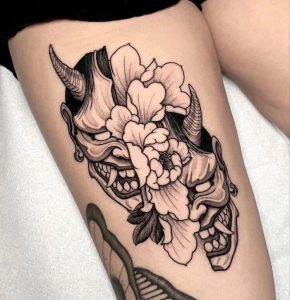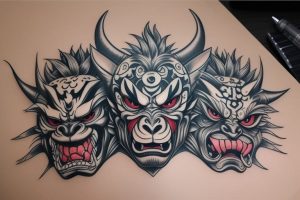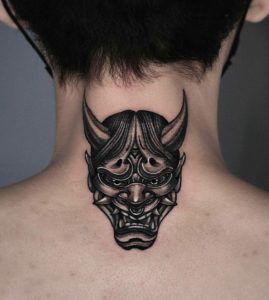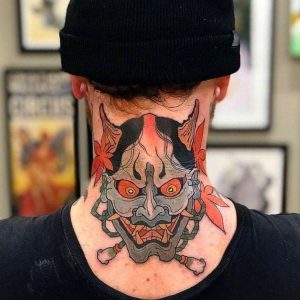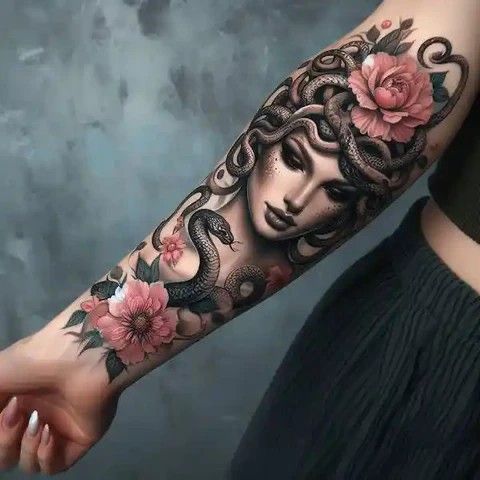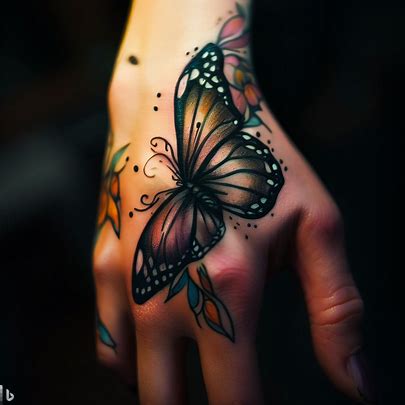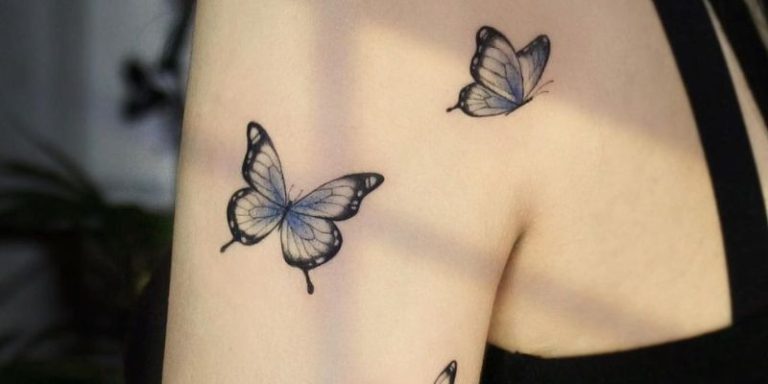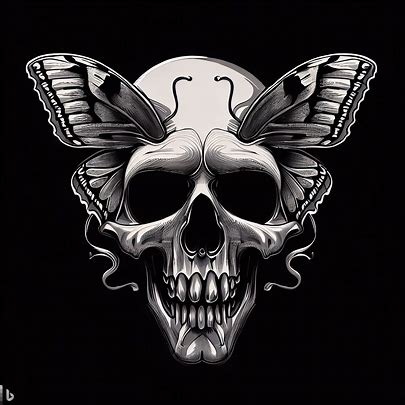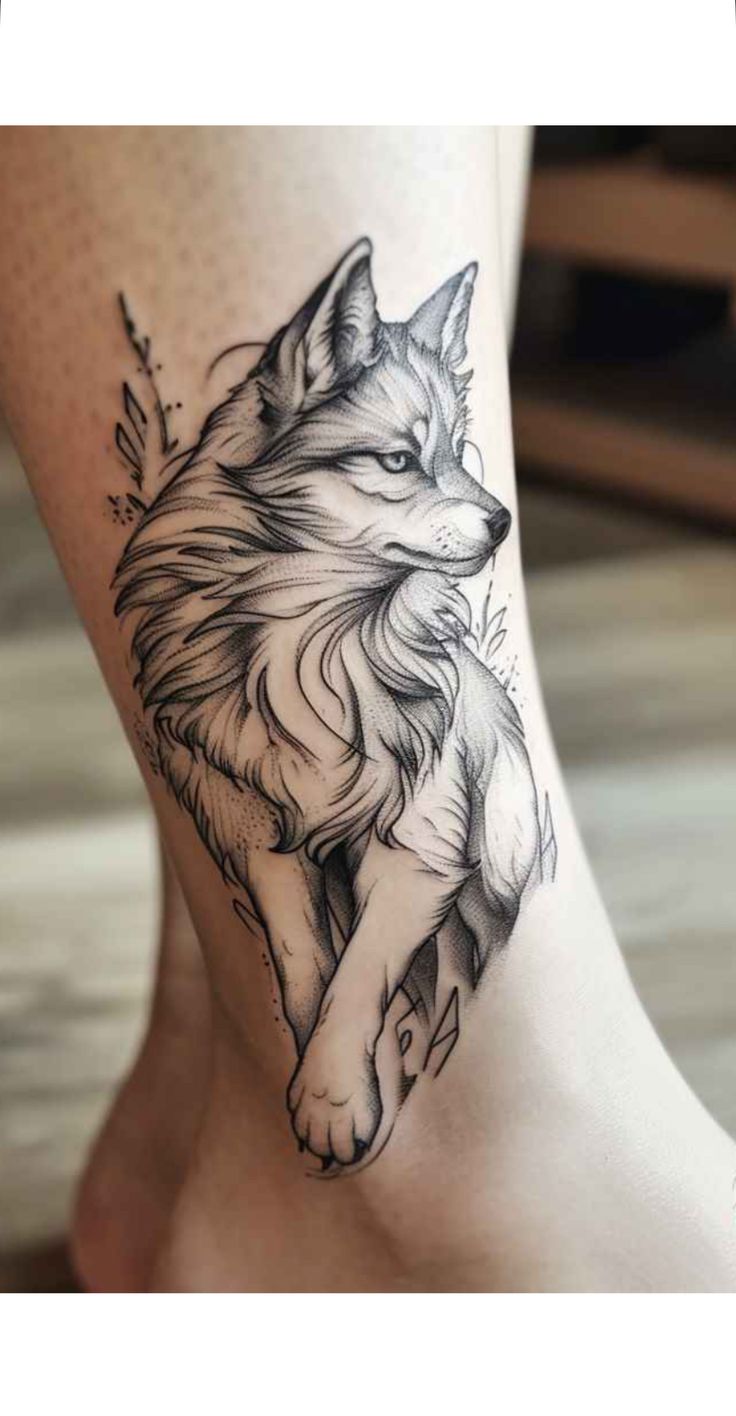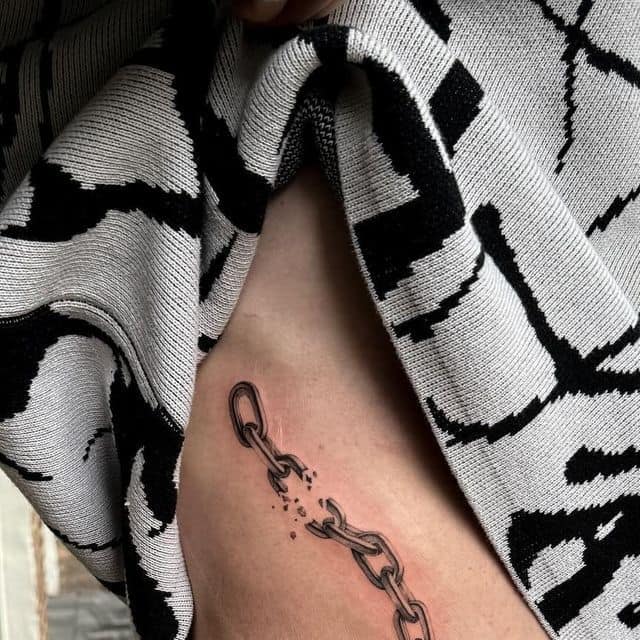Oni Mask Tattoo Meaning: Symbolism, Culture & Style Guide
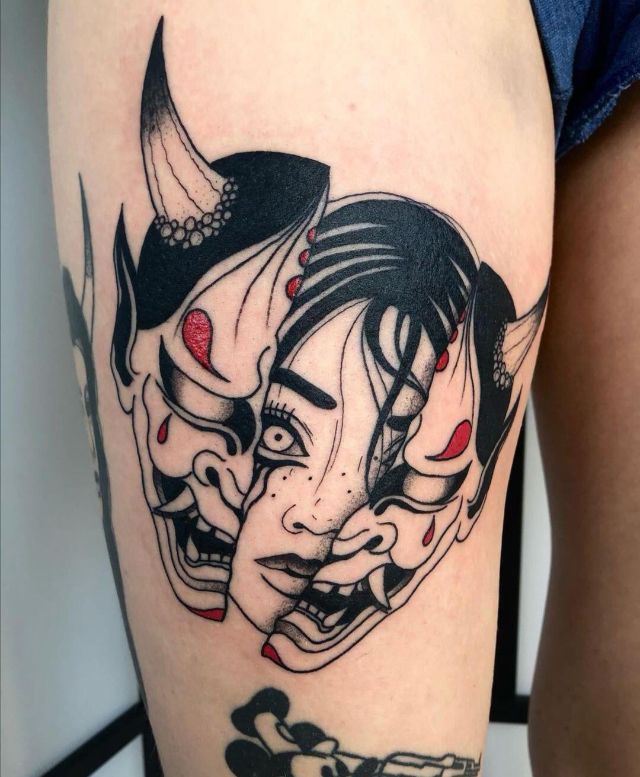
Introduction: What Is an Oni Mask Tattoo?
Oni mask tattoos are bold, eye-catching designs that come from Japanese folklore. They show the face of an Oni, a powerful demon or spirit, and carry deep meanings. These tattoos aren’t just about looking cool—they tell a story about strength, protection, justice, and even personal struggle.
In this guide, you’ll learn the true Oni mask tattoo meaning, its roots in Japan, what it symbolizes in different countries, and how people today—including celebrities—are using it to express themselves. We’ll also cover styles, placement ideas, and what to know before getting one.
What Does an Oni Mask Represent?
In Japanese stories, an Oni is a scary creature. They have horns, sharp teeth, wild eyes, and often red or blue skin. Oni are not always evil. Sometimes they punish bad people, sometimes they protect the good, and other times they test humans to help them grow.
An Oni mask is a face covering that shows this demon’s features. In tattoos, the mask becomes a symbol with many meanings depending on how you see it.
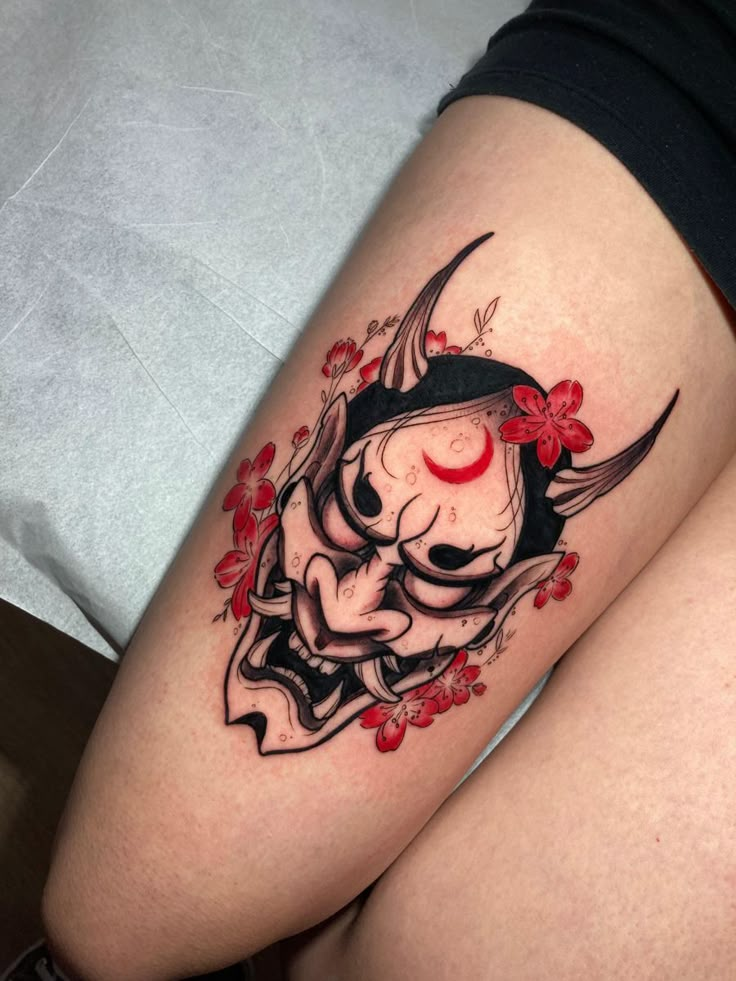
Oni Mask Tattoo Meaning: What It Stands For
1. Protection from Evil
Even though Oni look scary, many people believe they can protect you. An Oni mask tattoo is thought to scare away bad energy or evil spirits. In this way, it works like a guardian or shield for the person who wears it.
2. Inner Strength and Toughness
Oni tattoos can also show that you are strong inside, even if you’ve been through pain, stress, or hard times. It’s a way of saying, “I’ve faced my demons, and I’m still here.”
Many people get this tattoo after going through big life changes, trauma, or emotional struggles.
3. Revenge or Justice
In old Japanese tales, Oni often appear when someone does something very wrong. They serve justice or take revenge on bad people. So, for some, this tattoo represents standing up for yourself or getting justice.
4. Accepting Your Dark Side
Everyone has a darker side. The Oni mask tattoo can be a way to accept your past mistakes, flaws, or negative emotions. It says, “I know who I am, and I’m not afraid of it.”
Styles of Oni Mask Tattoos
There are many ways to design an Oni mask tattoo. Here are the most popular:
1. Traditional Japanese Style (Irezumi)
This classic style uses bold lines and rich colors. It may include flowers, waves, or samurai elements. It stays true to Japanese culture.
2. Modern or Neo-Traditional Style
These tattoos use bright colors, 3D effects, and more realistic shading. They are creative and detailed.
3. Black and Grey Style
No colors, just shades of black. This style feels more serious and emotional. It’s often chosen by people who want a deeper or more personal meaning.
4. Watercolor or Abstract Styles
These versions use splashes of color and unique shapes. They’re less traditional but more artistic and modern.
Best Places on the Body for Oni Mask Tattoos
Tattoo placement can add meaning to the design:
- Back: Symbolizes protection; the Oni “watches your back.”
- Chest: Shows courage and guards your heart.
- Arm/Forearm: Represents strength and readiness to act.
- Thigh or Leg: Shows your journey and movement in life.
- Neck or Hand: Bold and daring; represents full acceptance of your identity.
What Oni Mask Tattoos Mean in Other Countries
Oni masks come from Japan, but people all over the world now wear them as tattoos. Here’s how other cultures see them:
United States & Western Countries
In the West, Oni tattoos often mean power, rebellion, and toughness. Some people choose them because they look cool, but others do it for personal reasons, like overcoming struggles or expressing their darker side.
They’re especially popular in communities like bikers, fighters, or metal music fans, who relate to the bold and fierce look.
China, Korea, and Other Asian Cultures
In China, Oni-like creatures are also known, but they have different names and stories. Still, the idea of using demons or masks for protection and balance is understood. In Korea, similar spirits (like Dokkaebi) also act as both tricksters and protectors.
So, many Asian tattoo lovers use the Oni mask to mix meanings from different traditions.
Polynesian and Maori Cultures
In Polynesia and New Zealand (Maori), tattoos have deep spiritual roots. Though Oni masks are not native here, similar spirits and warriors are shown in tattoos. People sometimes blend Oni designs with tribal patterns, seeing them as guardians or ancestors.
Europe
In European countries like Germany, France, or the UK, Oni mask tattoos are often chosen for their bold visual style. People connect them to power, fear, or life’s darker themes. In places with a strong tattoo culture, Oni designs are paired with skulls, dragons, or even gothic art.
Which Celebrity Has an Oni Mask Tattoo?
Post Malone
One celebrity who has an Oni mask tattoo is Post Malone, the popular American rapper and singer. He’s known for his bold face tattoos, and one of his designs includes a Japanese demon mask similar to an Oni.
Post has said his tattoos represent his battles and personality, so his Oni mask may symbolize his struggles, strength, and darker moments in life. His use of this tattoo helped bring even more attention to the Oni symbol in modern culture.
New Trend: Oni Mask Tattoos for Mental Health Symbolism
Recently, more people are choosing Oni mask tattoos as a symbol for mental health awareness. They use the mask to show that they’ve faced anxiety, depression, addiction, or trauma, but have come out stronger.
The Oni becomes a reminder of survival. Some even add elements like lotus flowers (for rebirth) or chains breaking (for freedom) next to the mask.
Common Tattoo Ideas to Combine with Oni Masks
You can customize your Oni tattoo with these elements to create deeper meaning:
- Cherry blossoms: Life is short but beautiful.
- Samurai swords: Warrior spirit and honor.
- Skulls: Death, transformation, or danger.
- Dragons: Power, wisdom, or protection.
- Fire or Smoke: Chaos or rebirth.
- Lotus flowers: Peace after pain.
Oni Mask vs. Hannya Mask: Know the Difference
Many people mix up Oni masks with Hannya masks, but they’re not the same.
- Oni Mask: A general demon spirit, often male. It can be good or bad. Stands for strength, revenge, or protection.
- Hannya Mask: A woman turned into a demon because of jealousy or betrayal. Symbolizes heartbreak, anger, or sadness.
So, if you want something that shows inner pain or heartbreak, Hannya might be better. But for power, strength, or personal demons, Oni is the right choice.
Things to Think About Before Getting an Oni Mask Tattoo
Here are a few tips to make sure your tattoo choice is meaningful and respectful:
- Research: Learn the real history behind Oni masks.
- Know your message: What do you want the tattoo to say about you?
- Respect the culture: This is a part of Japanese tradition. Be thoughtful, not careless.
- Choose a skilled artist: Not every artist can draw Oni masks well. Look for someone with experience in Japanese or detailed tattoo styles.
Final Thoughts: Is an Oni Mask Tattoo Right for You?
The Oni mask tattoo’s meaning goes much deeper than just looks. It’s about strength, fighting through pain, standing up for yourself, and sometimes even healing. Whether you see the Oni as a protector, a punisher, or part of your inner self, this tattoo can carry strong, personal value.
Take your time choosing the style, placement, and message. Make sure it tells your story, not just a trend.
Stylish Oni mask tattoo Design Ideas
